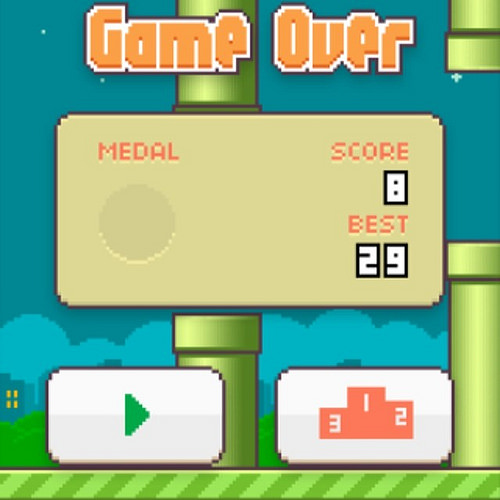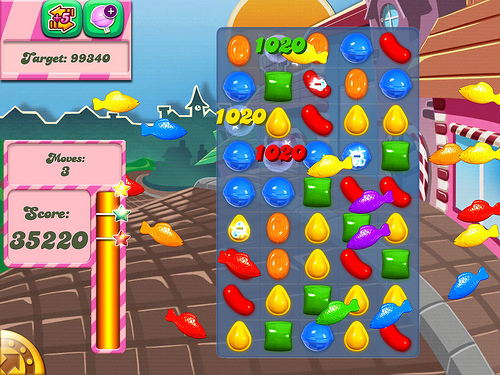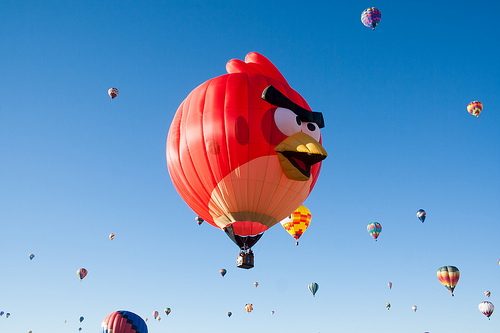The mobile app market has completely overhauled the video game market. In an industry that once required thousands of dollars and a legion of programmers to produce a product, individuals and small groups of entrepreneurs can now produce games grossing millions of dollars from their bedrooms. However, the success of a #1 selling game does not come easy and sometimes causes more problems for the now wealthy developer. Here are five examples of successful game developers who had to learn how to handle success almost overnight.
Which game development tools help you become successful? Let us know of your favourites in the Developer Economics Survey.
Halfbrick Studios (Fruit Ninja)

Before Fruit Ninja, most people had never heard of Halfbrick Studios. They had worked on a handful of games like Rocket Power: Beach Bandits, Age of Zombies, Monster Dash, and a variety of Avatar — The Last Airbender installments. However, Fruit Ninja had the right combination of addictive and visceral gameplay to make it a virtual overnight success. For others dealing with a windfall of cash, Halfbrick Studio’s story is a good one to follow. Instead of tripping over their own feet after a massive growth spurt, the close-knit group of developers decided to focus on quality over quantity, avoiding the route companies like Zynga took (how many “___-ville” games can you name?). The developers said the success of Fruit Ninja has given them breathing room to perfect games they want to make.
OMGPop (Draw Something)

Second in our list of successful game developers comes the OMGPOP team. A mobile gaming take on the classic pen-and-paper game of Pictionary, Draw Something is a study in how persistence can lead to huge success in the app industry. Before their top-selling drawing game took off, developer OMGPop had produced around 30 games that quickly fell into relative obscurity (do you remember Hamster Battle? No? Didn’t think so). A short time after Draw Something started topping charts relatively overnight, Zynga bought OMGPop for roughly $200 million, and the CEO of OMGPOP, Dan Porter, later went on to work for them as the vice president of their mobile division for a little over a year. Porter now continues to climb the corporate ladder and currently serves at the Head of Digital at William Morris Endeavor, the world’s largest diversified talent agency.
.GEARS Studio (Flappy Bird)

Not all overnight success stories end well as the tale of .GEARS Studio’s Flappy Bird shows us. Dong Nguyen’s creation was pulling in $50,000 a day—a veritable golden goose—making it one of the most popular games for smartphone users. However, a litany of complaints ranging from the game’s addictiveness, difficulty and resemblance to Super Mario 3 was too much for Nguyen to handle. Something about the fame mixed with user criticisms struck a nerve with the overnight app celebrity, who ultimately took down the game from app stores in mid-February 2014 without selling out to another company. It also begs the question—Was success too much for Nguyen, or was it all a stunt to generate interest for his next title?
King Digital Entertainment (Candy Crush Saga)

Candy Crush Saga, produced by King Digital Entertainment, is one of the mobile gaming world’s most addictive releases yet. To capitalize on their virtual overnight success, King decided to try their luck on Wall Street by announcing their intent to file for an IPO, following Twitter’s example.
Rovio Entertainment (Angry Birds)

The Angry Birds franchise is the most successful smartphone game the world has ever seen. The series’ multiple installments have garnered over two billion downloads worldwide, but things weren’t always up for Rovio. It took them 51 tries on other apps before Angry Birds came around. Rovio’s strategy to deal with the success was simple—diversify. Expanding beyond the mobile platform, Rovio now produces Angry Birds clothing, books, cartoons, educational materials, movie franchise tie-ins, and more. They’ve even been eyeing the Hello Kitty franchise, looking for some indication in how they can expand their own enterprise.
Overnight success in the gaming industry is happening more and more everyday thanks to mobile technology. However, millions made in a night is no guarantee for smooth sailing. Developers soon discover they need savvy business acumen to stay afloat.
– Joe
Joe Fortunato is a tech writer based out of Tampa, FL. His extensive work for T-Mobile has afforded him the opportunity to explore many different avenues of the mobile world. App development, NFC technology, and new device specs are some of his favorite areas to cover. To get in contact with Joe, give him a shout on Twitter at @joey_fort.
If you are trying to hit the successful game developers list, then you first need to understand the Science of Mobile Game Marketing.
Which are your best and worst game development tools? Let us know and you might win amazing prizes and gear, in our Developer Economics Survey.


